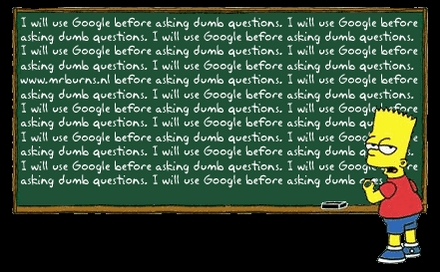|
ESL Forum:
Techniques and methods
in Language Teaching
Games, activities
and teaching ideas
Grammar and
Linguistics
Teaching material
Concerning
worksheets
Concerning
powerpoints
Concerning online
exercises
Make suggestions,
report errors
Ask for help
Message board
|
ESL forum >
Grammar and Linguistics > A question- have got vs have without the got
A question- have got vs have without the got
|

sarasantos

|
A question- have got vs have without the got
|
|
Hi there to all of you!
I have a question to the grammar enthusiasts here...
Is it the same to use have got or just have, ommiting the got? Same meaning???
It is probably a stupid question, but it is an existencial one!! LOL!  Can you enlighten me, pleeease?!
Thanks in advance!
Have a lovely day! |
7 Nov 2014
|
|
|
|

Peter Hardy

|
The only stupid question is the one not asked! If you scroll down the page you �ll see the same question and my answer. I must have posted it at the same time you asked the question. Cheers, Peter

|
7 Nov 2014
|
|
|

sarasantos

|
|
Oh my God, you �re right, I �ve missed it! Thanks for bringing it to my attention!
And I did ask google before posting the question here, but it was such a mess that I got more confused! 
I will take a look "downstairs"! Thank U!
Cheers,
Sara |
7 Nov 2014
|
|
|

Elina21

|
Hi Sara!
I don �t know if you have found your answer by now, but I will give you my answer anyway.
I know that �have � is used in American English to express states: possession, relationships, illnesses, the characteristics of people and things, and similar ideas. Got-forms are used in British English in an informal style to express strong possession. eg I �ve got a new boyfriend (more natural than I have a new boyfriend). The �got � forms mean exactly the same with the �just have � forms and they are most common in the present. They are not used in short answers or tags.
�Have � forms are used in British English mostly to express habit or repetition: e.g. Do you often have meetings? but they say: e.g. Have you got a meeting today? However, in modern British English this tends to change and they have started using the �have � forms in the general way the Americans use it.
I hope this helped!
Have a nice weekend!
Elina21
|
7 Nov 2014
|
|
|

cunliffe

|
|
Great answer from Elina21. I was pondering this. We always say �students who have EAL � never �students who have got EAL � for example and her explanation makes good sense. |
7 Nov 2014
|
|
|

sarasantos

|
Thank U all for your interest and time to shed light on this matter!
Bless you! |
7 Nov 2014
|
|
|

redcamarocruiser

|
|
I was also thinking about this and googled it.
Although all the reerences I consulted say that have got is British and have American, to me they are both widely used in the US. I think they are equivalent. I tried to feel if there is a difference between the following sentences, examples of the categories that Elina21 gave us.
possession I �ve got a car. I have a car.
relationships I �ve got a girlfriend. I have a girlfriend.
I �ve got 2 sisters. I have 2 sisters.
illnesses I �ve got the flu I have the flu
characteristics of people She �s got freckles. She has freckles.
I imagined scenarios where the sentences would be used and came up with some ideas that I felt made sense.
The more I read of the discussion, the more silly it seemed to me to be hairsplitting the difference in meaning between HAVE and HAVE GOT.
Rereading what I thought (below) about and felt were the differences in meaning, now feels like I was trying to manufacture an artificial difference, where there is none. I wonder if other native speakers feel that my differences in meaning strike them as artificial or if there is some basis to what I thought. (Does it resonate in them or ring true)?.
Here is what I thought:
MEDICAL CONDITIONS We say I �ve got a headache/backache/stomachache as often as I have a headache...
To me the difference in meaning is when I say I �ve got a headache, it feels more temporary than when I say I have a headache (which feels like a state that will not pass so soon).
Have got makes the headache feel more contained or confined to just a part of our consciousness. I have a headache, on the other hand, feels like the headache is in the forefront. It is the center of our attention and it squeezes out the other things we might be conscious of.
I would like to go out for dinner, but I have a headache (so I can �t think of anything else). I have got a headache, but I won �t let it incapacitate me. Of course I would like to go out to dinner with you.
DESCRIBING PEOPLE To me it is equally common to say She has freckles or she �s got freckles. She has a beautiful smile or she �s got a beautiful smile. He has brown hair or she �s got brown hair. She �s got braces or she has braces, she �s got a dimple or she has a dimple. With these examples it seems that GOT is used when mentally making up the list of her characteristics right now.
Got seems to be more spur of the moment, while HAVE is used to make a general description such as for a police report. The suspect has brown hair, blue eyes, is of medium build, has a scar on his abdomen, has a tatoo on hiis arm, a prominent mole on his forehead and has freckles.
By the way, I asked my daughter and she felt that the expressions (have got and have) are equivalent, as do I.
|
7 Nov 2014
|
|
|

yanogator

|
|
Well, red, I think you are imagining the differences. In the US, it is just a matter of personal preference. I never use "have got".
Bruce |
7 Nov 2014
|
|
|
|
|












